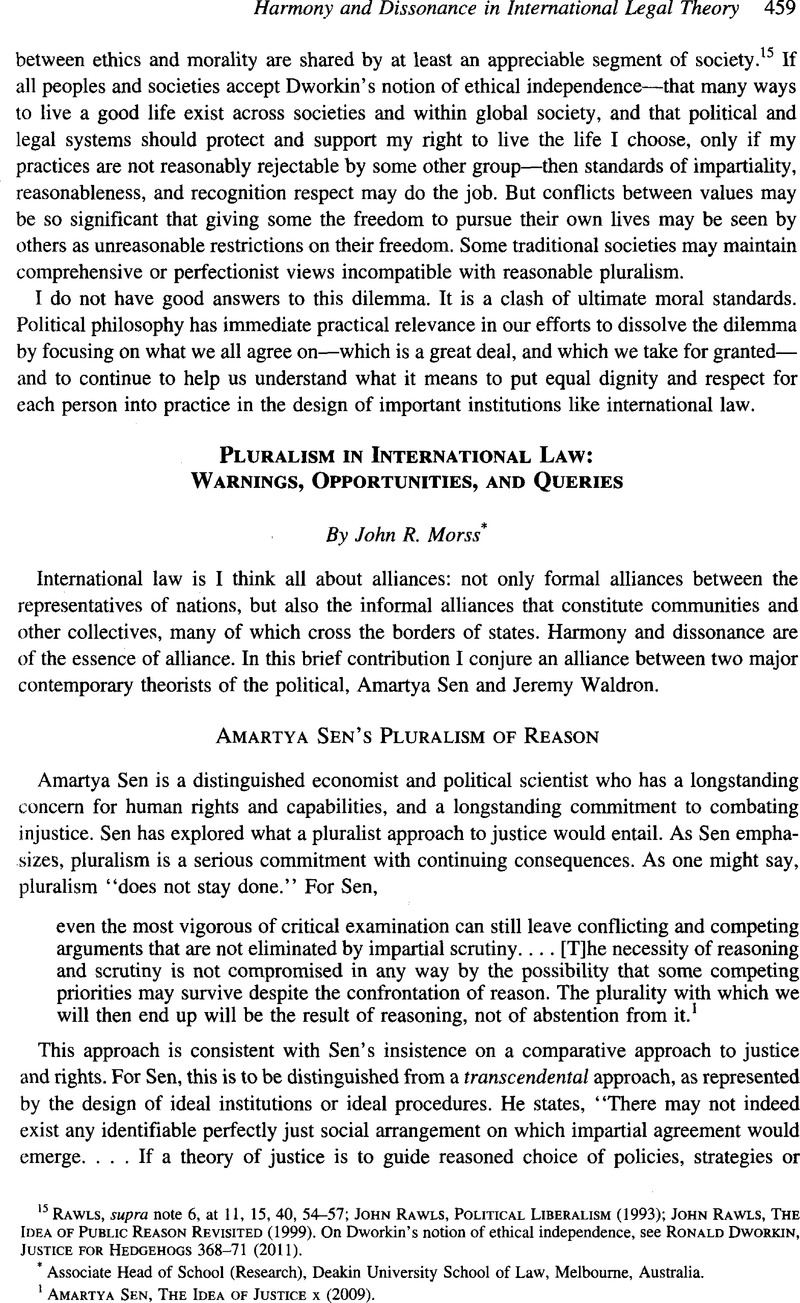No CrossRef data available.
Published online by Cambridge University Press: 28 February 2017

1 Amartya Sen, The Idea of Justice x (2009).
2 Id. at 15.
3 ld. at 2.
4 Waldron, Jeremy, Can there Be a Democratic Jurisprudence? 5 (N.Y. Univ. Pub. Law & Legal Theory Working Papers, Paper No. 97, 2008)Google Scholar.
5 Waldron, Jeremy, Can there Be a Democratic Jurisprudence? 58 Emory L. J. 675 (2009)Google Scholar.
6 Doris Kearns Goodwin, Team of Rivals (2005).
7 Waldron, Jeremy, Two Conceptions of Self-Determination, in the Philosophy of International Law 397, 400 (Besson, S. & Tasioulas, J. eds., 2010)Google Scholar; see also Oklopcic, Zoran, Populus Interruptus: Self-Determination, the Independence of Kosovo, and the Vocabulary of Peoplehood, 22 Leiden J. Int’l L. 677 (2009)Google Scholar.
8 Waldron, Jeremy, The Dignity of Groups 28 (N.Y. Univ. School of Law, Pub. Law Research Paper, Paper No. 08-53, 2008)Google Scholar, available at http://ssrn.com/abstract=1287174 (last visited Sept. 20, 2010).
9 Id. at 29.
10 Jeremy Waldron, The Dignity of Legislation (1999).
11 The international legal status of persons like Napoleon is illuminating. For an insightful conceptual discussion, see Acquaviva, Guido, Subjects of International Law: A Power-Based Analysis, 38 Vanderbilt J. Transnat’l L. 345 (2005)Google Scholar.
12 Morss, John R., The Legal Relations of Collectives: Belated Insights from Hohfeld, 22 Leiden J. Int’l L. 289 (2009)Google Scholar.
13 Patrick Capps, Human Dignity and the Foundations of International Law (2009).